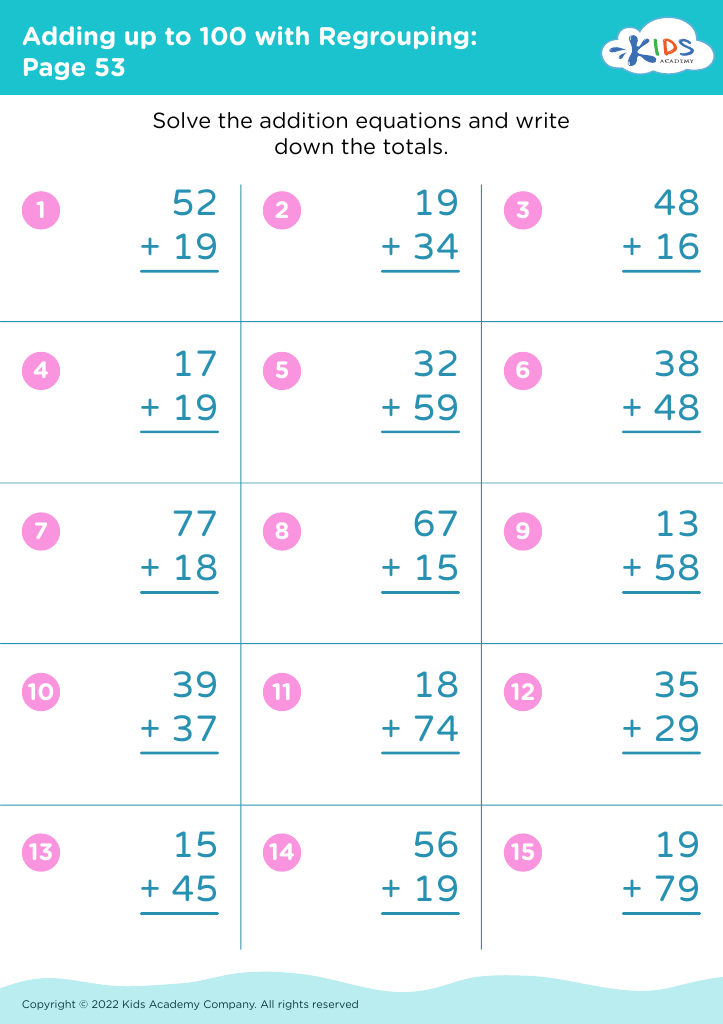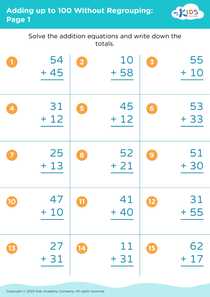Recognize patterns Adding up to 100 with Regrouping Worksheets for Ages 3-7
3 filtered results
-
From - To
Discover exciting and engaging "Recognize Patterns: Adding up to 100 with Regrouping" worksheets designed for children aged 3-7! These expertly crafted activities help young learners master the basics of addition through fun, colorful exercises that emphasize pattern recognition and regrouping techniques. Perfect for early math development, our worksheets are tailored to foster a love for numbers while building essential arithmetic skills. Ideal for both home and classroom settings, Kids Academy's resources ensure a solid foundation in math for young minds. Boost your child's confidence and make learning enjoyable with our innovative and interactive addition worksheets!
Recognizing patterns and adding up to 100 with regrouping are foundational skills for young learners aged 3-7. These skills are critical because they build the basic mathematical understanding required for more complex problem-solving in later years. By recognizing patterns, children develop logic and reasoning, which are essential for understanding how numbers are interconnected. This skill helps them predict and make educated guesses, which are useful in all areas of learning.
Adding up to 100 with regrouping introduces youngsters to the concept of place value—the understanding that in a two-digit number, one digit represents tens and the other represents ones. Regrouping, or carrying, teaches them how to manage larger numbers and lays the groundwork for future operations, such as subtraction, multiplication, and division.
These skills also enhance children's mental arithmetic abilities, enabling them to calculate quickly and accurately. This is crucial not only in academic settings but in daily life situations. Most importantly, grasping these concepts at an early age builds confidence. Children who feel competent in math tend to approach new challenges with enthusiasm and are more likely to enjoy learning.
For both parents and teachers, emphasizing these skills ensures a solid mathematical foundation. It sets children on a path to academic success and cultivates a lifelong curiosity and confidence in numeracy.














